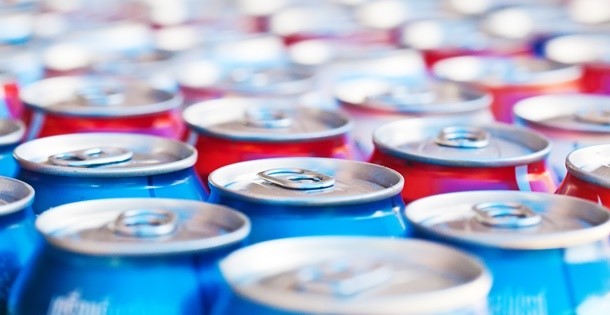“Your Weekly Checkup” is our online column by Dr. Douglas Zipes, an internationally acclaimed cardiologist, professor, author, inventor, and authority on pacing and electrophysiology. Dr. Zipes is also a contributor to The Saturday Evening Post print magazine. Subscribe to receive thoughtful articles, new fiction, health and wellness advice, and gems from our archive.
Order Dr. Zipes’ new book, Damn the Naysayers: A Doctor’s Memoir.
Being 10 pounds overweight and a coffee drinker, I try to avoid additional calories by using artificial sweeteners instead of sugar in my coffee. A recent publication has made me question the soundness of that choice.
In the journal Stroke, investigators of the Framingham Heart Study Offspring cohort studied 2,888 participants for new onset stroke and 1,484 participants for new onset dementia. They found that higher consumption of artificially sweetened soft drinks was associated with an almost three-fold increased ten-year risk of stroke, particularly ischemic stroke, and Alzheimer’s dementia. Consumption of sugary beverages or sugar-sweetened soft drinks were not associated with the risks of stroke or dementia. However, before concluding that sugary drinks are okay, consider the Nurses’ Health Study and Health Professionals Follow-Up Study. They reported that greater consumption of sugar- and artificially sweetened soft drinks was each independently associated with a higher risk of stroke. Also, too much sugar can be associated with diabetes, obesity, and metabolic dysfunction.
You should accept conclusions from these reports with some caution because they are observational studies, which prevents drawing definitive causal links between sugary and artificially sweetened beverage consumption and the risks of stroke and dementia. Also, in the first study, participants with diabetes—who would be more likely to develop stroke and dementia—consumed more artificially sweetened beverages, which could impact the conclusions.
Nevertheless, it would be wise to cut back on sugary and artificially sweetened beverages. While the non-caloric artificial sweeteners are so sweet they can be used in small amounts with little added caloric value and are thought to be excreted unchanged and therefore metabolically inert, there is increasing controversy whether that is true and whether they can alter the microflora in the GI tract and thus promote metabolic derangements in some people. Artificial sweeteners might even affect wildlife since they can pass non-degraded through wastewater treatment systems and are subsequently discharged to groundwater and surface waters.
There is a lot we can learn from nature. Consider the quote by Joan Dye Gussow, who wrote, “As for butter versus margarine, I trust cows more than chemists.” Whole, natural foods like chicken and fish, fresh salads, and nuts with a dash of red wine are to be preferred over processed foods that have been altered by food industry chemists. That includes artificially sweetened soft drinks and foods.
Become a Saturday Evening Post member and enjoy unlimited access. Subscribe now




Comments
I don’t drink soda, haven’t for many years. This article doesn’t mention the use of Stevia as a sweetener, is it one that shouldn’t be used?
I am a migraine sufferer. Even a small amount of artificial sweetener, such as in a breath mint, will trigger a migraine in me. When I broke my arm and was in emergency, they offered me a small pill to dissolve in my mouth to prevent nausea. I asked them if it contained artificial sweetener. They didn’t know and had to have the hospital pharmacy research it. It did, so fortunately I hadn’t taken it.
I have to agree with AmeriBev’s comments. I think it is dangerous and irresponsible to publish that headline to the article, which most people will take as gospel since it’s coming from a doctor and all. Most people won’t bother to read the rest of the article which clearly shows that these are unproven opinions only. Shame on you Dr. Zipes for using your position and title to spread fear in hundreds of people.
Low-calorie sweeteners have been proven safe by worldwide government safety authorities as well as hundreds of scientific studies and there is nothing in this research that counters this well-established fact. The FDA, World Health Organization, European Food Safety Authority and others have extensively reviewed low-calorie sweeteners and have all reached the same conclusion – they are safe for consumption.
Moreover, the authors of the study cited here acknowledge that their conclusions do not – and cannot – prove cause and effect with respect to stroke and dementia. And according to the National Institutes of Health (NIH), many risk factors can increase an individual’s likelihood of developing stroke and dementia including age, hypertension, diabetes and genetics. NIH does not mention zero calorie sweeteners as a risk factor.
It’s also important to note that scientific evidence establishes that beverages containing these sweeteners can be a useful tool as part of an overall weight management plan. In fact, the CHOICE study, published in the American Journal of Clinical Nutrition in January of 2013 confirms that low- and no-calorie beverages can be an important tool in helping reduce calories.
This is a really good information, Dr. Zipes. I see so many women (in particular) downing a lot of Diet Coke at work and out and about. I’ve known for a long time this is bad stuff because of the artificial sweeteners and other ingredients. In addition, to me, it tastes terrible; once was enough.
The high fructose corn syrup in the regular versions aren’t healthy either, and is used as a sweetener in a lot of products today unfortunately. I try to limit my own non-water drinks to healthy versions of orange and other fruit juices, and occasional (a few times per month) of healthier soft drinks from Sprouts or Follow Your Heart. They’re more expensive, but isn’t your body worth it?
As for having a Coke, I will have one of the bottled ones from Mexico now and then. It’s not a health drink either, but sure tastes great. Isn’t that the point, or should be the point?